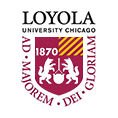
Jason P. Wapiennik
Great Lakes Customs LawJason Wapiennik was in the field of Customs law even prior to his graduation from Ave Maria School of Law in 2008. From January 2007 until September 2009, he clerked for Edmund Maciorowski, P.C., a customs law firm and since leaving there, has been in private practice at Great Lakes Customs Law. Before attending law school, Jason began his undergraduate education at Purdue University and later transferred to Loyola University Chicago. At Loyola, he earned a Bachelor of Arts in Political Science graduating magna cum laude, and with departmental honors in political science. He is a member of Alpha Sigma Nu, the Jesuit honor society whose principles are scholarship, loyalty to Jesuit ideals, and service. His love for advocacy and writing led him to law school, where he attended Ave Maria School of Law located in Ann Arbor, Michigan. As part of his education, Jason has lived in Rome during a prestigious study abroad program at Loyola’s John Felice Rome Center campus in Rome, Italy, where he also served as vice president of the International Relations club. During law school, Jason also took an opportunity to study at Krakow’s Jagiellonian University in Poland for the International Business & Trade Summer Law Program, which was made possible through a generous scholarship from the Kosciuszko Foundation. When he’s not practicing in his chosen fields of law, Jason enjoys spending time and traveling with his wife Joanna and their son Jacob.
- Ave Maria School of Law
- J.D. (2008) | Law (Juris Doctorate)
- -
-

- Loyola University Chicago
- B.A. (2005) | Political Science
- -
- Honors: Magna Cum Laude, Departmental Honors
- Activities: Alpha Sigma Nu
-

- Purdue University - Purdue University Calumet
- transferred | Political Science
- -
-

- Principal/Attorney
- Great Lakes Customs Law
- - Current
- Great Lakes Customs Law is an experienced customs law firm providing importers with compliance advice, defense and mitigation of penalty and liquidated damage claims, tariff classification, valuation, and remission of seizures and forfeitures, especially cash seizures effected by U.S. Customs & Border Protection at airports and land border crossings.
- Clerk/Associate
- Edmund Maciorowski, P.C.
- -
- Customs Law
- International Compliance Professionals Association
- Member
- Current
-

- Illinois
-

- Michigan
-

- International Law
- Human Rights, Imports & Exports
- Customs & Trade Law
- English: Spoken, Written


 What Happens After My Money is Seized by Customs
What Happens After My Money is Seized by Customs
 Customs Penalty Process
Customs Penalty Process
 How to Properly Report Cash to Customs (FinCEN 105)
How to Properly Report Cash to Customs (FinCEN 105)
 The 3 Options to Get Your Money Back From Customs
The 3 Options to Get Your Money Back From Customs
 What Are the Possible Penalties for a Money Seizure?
What Are the Possible Penalties for a Money Seizure?
 What Can I Expect When I Try to Get Money Back Myself
What Can I Expect When I Try to Get Money Back Myself
 What is the Election of Proceedings Form
What is the Election of Proceedings Form
 What Types of Proof do I Need for Getting my Money Back
What Types of Proof do I Need for Getting my Money Back
 Why Was My Money Taken: Bulk Cash Smuggling (Violation 2)
Why Was My Money Taken: Bulk Cash Smuggling (Violation 2)
 Why Was My Money Taken: Failure to Report (Violation 1)
Why Was My Money Taken: Failure to Report (Violation 1)
 Why Was My Money Taken: Structuring (Violation 3)
Why Was My Money Taken: Structuring (Violation 3)